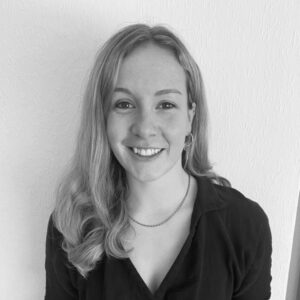During our Teach the Teacher Courses, we regularly explore the concept of unconscious-incompetence: the situations where we don’t know what we don’t know. An unconsciously-incompetent doctor comes with potentially serious risks. The risks created by shortfalls in knowledge, skill or attitude could be to patient safety, to team-members wellbeing or even endangerment to the doctor themselves.
The most obvious reason for unconscious-incompetence is lack of experience. We’re all on our personal, unique learning curve. There might be something we’ve never been told or shown; some facts and concepts we’ve never connected; a situation we’ve never encountered. But sometimes, it’s a result of our forgetting curve. This is where we lose skills and knowledge through lack of use. In addition, bad habits can easily creep in over time without us being aware.
Whatever’s at the root of our incompetence, something needs to happen to bring it to our attention. That’s an essential step in prompting us to take action. Something has to go wrong. We have to make a mistake. But, even when something does happen, our incompetence blind-spot can mean we don’t notice the problem. We need someone else to point the issue out to us. This will often be the person who is acting in some way or other as our teacher.
But what if the person who is unconsciously-incompetent is the teacher? All sorts of power dynamics now come into play. Who’s brave enough to stand up and challenge the teacher?
Step up Joy Hodkinson
Joy is a foundation doctor who has had a letter published in the BMJ. “Medicine is blind to body diversity – and it’s limiting doctors’ examination skills” is essential reading for anyone involved in medical education. In her letter, Joy eloquently relays her experience as a volunteer patient on an ultrasound course. She describes her disappointment at being kept away from the cardiac stations, which she was keen to experience, with the explanation that “breasts make it harder to visualise the heart”.
The absurdity of this approach in teaching doctors how to competently perform an echocardiogram examination should be obvious. Joy explains her concerns in detail, how avoidance of embarrassment and awkwardness has real impacts on patient care.
…if medical students are not taught how to examine women then, by definition, our cases do become more “difficult.” The exclusion of women from clinical teaching vignettes is perpetuated, and sexism masquerades as pragmatism.
Joy Hodkinson, BMJ 2023;383:p2591
It’s important to note that Joy spreads the spotlight beyond her own personal feelings and the impacts of medical education shortcomings with regard to female patients. Among other shortcomings, she describes the experience of her male peers being pushed into removing their shirts in front of others to enable fellow students learning. She also mentions limitations on the level of attention given to disability, body size and race.
Better experiences
Thankfully, Joy also relates a positive example of medical education and offers constructive ideas for the way forward.
A genital examination has high potential for embarrassment for both patient and the inexperienced doctor. But Joy describes how the care and support of her facilitators at a teaching session on the skill helped to build her confidence in performing this delicate task.
She recommends teachers taking the same approach to teaching physical examinations as they do for teaching communication skills. That physical techniques needs to shift from being taught as linear processes to being applied in an engaged, responsive and caring manner for patients of all types.
In recent times, it’s becoming increasingly clear that medical education has been too focused on “able bodied, white, heterosexual, slim, middled-aged cis-gendered” men. They only form a small proportion of the patients that a doctor encounters in an average day.
So, well done and thank you Joy for speaking up and making a significant contribution to the discussion.
What steps are you taking to ensure your medical teaching is eliminating the blind spots?
Stephen McGuire – Managing Director






